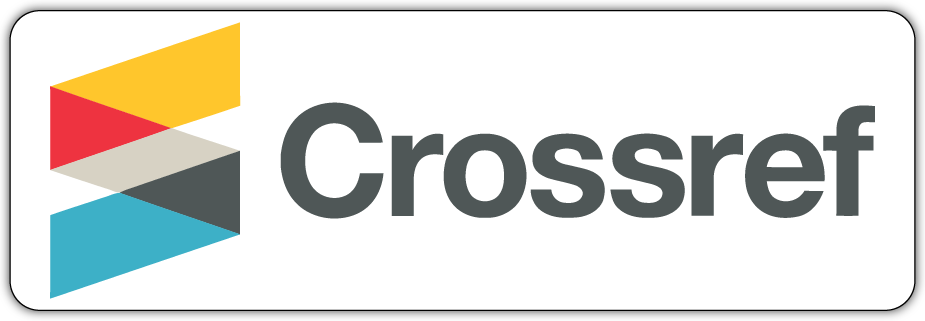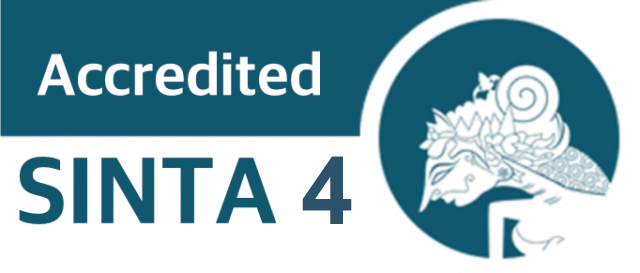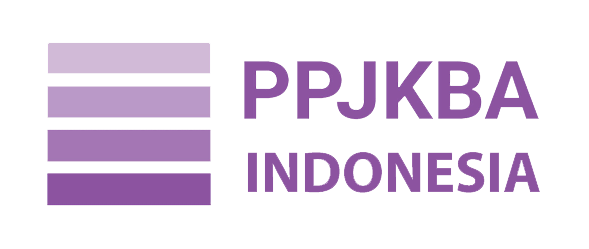Analysis of Multiple Intelligences in Arabiyah Baina Yadaik Book
Abstract
This study aims to describe the analysis of multiple intelligences in the book 'Arabiyah Baina Yadaik. The research approach is qualitative, specifically library research. The analysis technique used is content analysis. The content analysis used is a qualitative content analysis approach. The data collection process is a literature study analysis of the book by reviewing learning materials and practice questions, analyzing the suitability of the book with aspects of multiple intelligences, then describing the results of the analysis and providing conclusions with suggestions. Based on the results of the research, the distribution of multiple intelligence aspects in the book is still uneven. Analysis of learning activities, materials, and practice questions in the book shows the highest intelligence is linguistic intelligence. The middle intelligence category includes spatial, interpersonal, and logical-mathematical intelligence. The lowest intelligence mentioned is existential intelligence. The book does not mention intrapersonal, kinesthetic, musical, or naturalistic intelligences at all. The four intelligences not mentioned in the book can be raised and developed by a teacher through learning activities in the classroom and outside the classroom with various methods, strategies, and more intriguing learning models.
Keywords
Full Text:
PDFReferences
Ahmadi, R. (2014). Introduction To Education Principles And Philosophy Of Education. Yogyakarta: Ar-Ruzz Media.
Ahsani, E. L. F. (2020). Analysis Of Teaching Materials For 2013 Curriculum Based On Multiple Intelligence For Grade IV. Elementary Islamic Teacher, 8(1), 2355-0155. Retrieved from http://journal.iainkudus.ac.id/index.php/elementary
Armstrong, T. (2009). Multiple Intelligences In The Classroom. ASCD.
Corazza, G. E., & Lubart, T. (2021). Intelligence And Creativity: Mapping Construct On The Space-Time Continuum. J. Intell, 9(1). https://doi.org/10.3390/jintelligence9010001
Fan, L., et al. (2021). Are Textbooks Facilitators Or Barriers For Teachers' Teaching And Instructional Change? An Investigation Of Secondary Mathematics Teachers In Shanghai, China. ZDM-Mathematics Education, 53. https://doi.org/10.1007/s11858-021-01306-6
Fleetham, M. (2006). Multiple Intelligences In Practice: Enhancing Self-Esteem And Learning In The Classroom. Network Continuum Education.
Gardner, H. (1983). Frames Of Mind: The Theory Of Multiple Intelligences. New York: Basic Books.
Gardner, H. (1999). Intelligence Reframed: Multiple Intelligences For The 21st Century. New York: Basic Books.
Hidayat, A. F. S. (2019). Al-Arabiyyah Baina Yadaik Textbook (An Evaluative Descriptive Analysis Study) (Thesis). Alauddin State Islamic University Makassar.
Jalaluddin. (2018). Psychology Of Islamic Education. Yogyakarta: Student Library.
Kusumaningtyas, D. I., & Kumalasani, M. P. (2019). Teacher And Student Responses To The Use Of Multiple Intelligences-Based LKS. Journal Of Basic Education (JBPD, 3(1), 62-66.
Lozano-Blasco, R., et al. (2022). Types Of Intelligences And Academic Performance: A Systematic Review And Meta-Analysis. J. Intell, 10(4). https://doi.org/10.3390/jintelligence10040123
Lunenburg, F. C., & Lunenburg, M. R. (2014). Applying Multiple Intelligences In The Classroom: A Fresh Look At Teaching Writing. International Journal Of Scholarly Academic Intellectual Diversity, 16(1), 1-14.
Moleong, J. L. (2008). Qualitative Research Methodology. Bandung: PT Remaja Rosdakarya.
Mudhajir, N. (1991). Qualitative Research Methods. Yogyakarta: Raka Serasin.
Nazir, M. (2005). Research Methodology. Jakarta: Ghalia Indonesia.
Penalber, M. D. (2023). The Practice Of Gardner's Multiple Intelligences Theory In The Classroom. Journal For Educators, Teachers And Trainers, 14(4), 62-74.
Sarbaini, A., & Hasanah, A. (2020). Application Of Character Education Values In Maharatul Kalam Course (Study On Students Of Arabic Language Education Study Program IAIN Metro Lampung). Al-Fathin, 4(2), 181-195. https://doi.org/10.32332/al-fathin.v4i02.3167
Savitri, I. M. (2008). Montessori For Multiple Intelligence. Yogyakarta: Bentang Pustaka.
Sugiono. (2015). Research & Development Methods: Research And Development. Bandung: Alphabet Publisher.
Schunk, D. H., Pintrich, P. R., & Meece, J. L. (2008). Motivation In Education: Theory, Research, And Applications. Pearson.
Sternberg, R. J., & Grigorenko, E. L. (2000). Teaching For Successful Intelligence: To Increase Student Learning And Achievement. Skyhorse Publishing.
Sulaiman, M. (2020). Analysis Of Plural Intelligence Content In Arabiyah Baina Yadaik Book 1 Volume 2.
Syarifah. (2020). Analysis Of Selection And Gradation Of Arabic Textbook Material 'Arabiyah Baina Yadaik. Sustainable, 3(1). Retrieved from http://jurnal.lp2msasbabel.ac.id/index.php/sus
Walfajri. (2019). Review Of Al-Balaghah Al-Wadhihah Textbook By 'Ali Al-Jarim And Musthafa Amin. Al-Fathin, 2(1), 31-46. https://doi.org/10.32332/al-fathin.v2i2.1421
Wulandari, N. (2018). Development Of Arabic Language Intensification Handbook At IAIN Metro Using The ADDIE Model. Al-Fathin, 1(2), 165-176. https://doi.org/10.32332/al-fathin.v1i2.1272
Yaumi, M., & Ibrahim. (2016). Learning Based On Multiple Intelligence: Identifying And Developing Multitalent. Jakarta: Prenada Media Group.
Zainab, S. (2021). Representation Of Multiple Intelligence Types In Class VII Junior High School Physics Textbooks. Journal Of Teacher And Learning Studies, 4(2), 398-399. http://doi.org/10.30605/jsgp.4.2.2021.1281
DOI: http://dx.doi.org/10.35931/am.v8i1.4205
Refbacks
- There are currently no refbacks.
Copyright (c) 2025 Al Mi'yar: Jurnal Ilmiah Pembelajaran Bahasa Arab dan Kebahasaaraban

This work is licensed under a Creative Commons Attribution-ShareAlike 4.0 International License.
Al Mi'yar: Jurnal Ilmiah Pembelajaran Bahasa Arab dan Kebahasaaraban
Index by:
![]()
![]()
![]()
![]()
![]()
![]()
![]()
![]()
![]()
![]()

Publish by:
Program Studi Pendidikan Bahasa ArabSekolah Tinggi Ilmu Al-Qur'an AmuntaiContact us:
Address: Jl. Rakha Pakapuran, Amuntai Utara
Kabupaten : Hulu Sungai Utara
Kode Pos : 71471
Provinsi : Kalimantan Selatan
Email: jurnal.almiyar@gmail.com

Ciptaan disebarluaskan di bawah Lisensi Creative Commons Atribusi-BerbagiSerupa 4.0 Internasional.
___________________________________________________________________________________________________________________________________________________________________
Ciptaan disebarluaskan di bawah Lisensi Creative Commons Atribusi-BerbagiSerupa 4.0 Internasional.

 slot88
slot88








